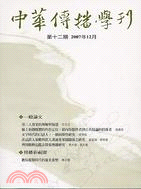 閱覽人數: 699
閱覽人數: 699
December
2007
No. 12
頁數:89 - 129
作者(中)
吳翠松
作者(英)
Tsui-Sung Wu
關鍵詞(中)
口語表達 ; 文化工具箱 ; 文盲 ; 口語文化 ; 套語
關鍵詞(英)
cultural tool-kit ; oral expression ; illiteracy ; media culture ; formulas
中文摘要
本文旨在探討生活在文字時代的文盲(即口語人),其口語表達特色為何?及目前的文化環境,是否影響其口語表達行為?在文中,研究者結合Ong、Swidler等人的觀點,以媒介文化工具箱的運用作為觀察重點。經由田野觀察發現,文盲日常生活的口語表達特色,在於大量使用俗、諺語與角色扮演等口語文化工具箱,但偶也使用文字文化所慣用的資訊搜尋與記錄工具,及抽象、分析、三段式邏輯推理等思維工具,以達其意圖。故雖未受正式教育,但文字文化對文盲的口語表達行為,仍產生某種程度的影響。
英文摘要
This study, drawing upon the research of Ong and Swidler on orality and cultural tool-kits, aims to examine the oral behavior of illiterate people. Based on the study of the oral expressions of the informants, we find that illiterate people who grew up in an oral culture can use both the tool-kits of oral and literate cultures to express themselves, however, they do exhibit more expertise when it comes to oral tool-kit.